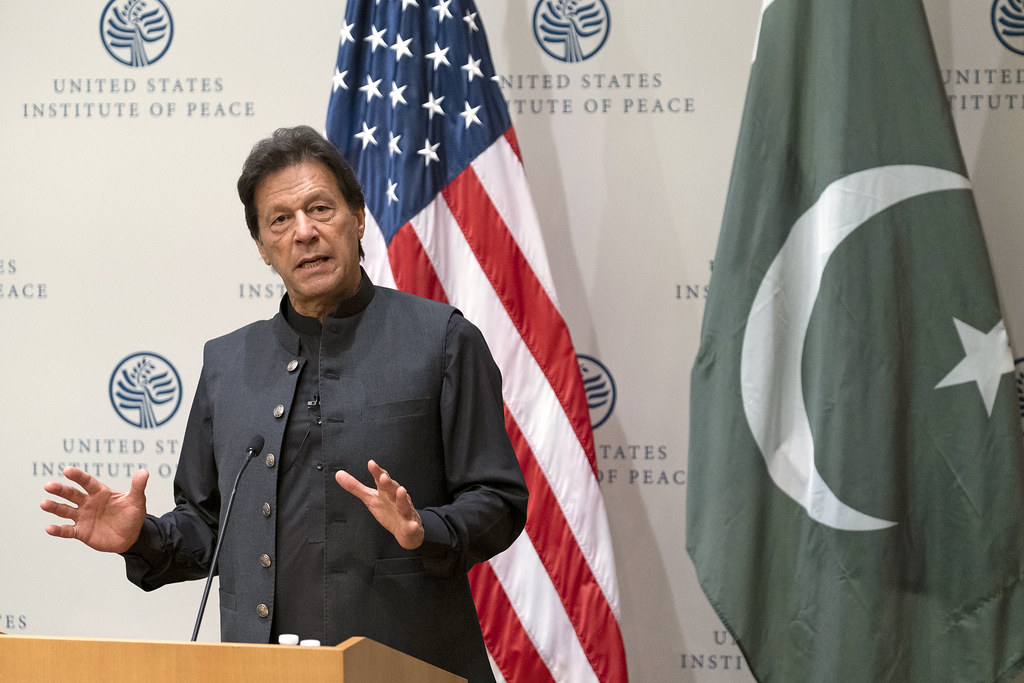In recent years, Pakistan's political landscape has witnessed significant fluctuations, with one of the most notable developments being the arrest of former Prime Minister Imran Khan. This event has sparked debates, speculations, and concerns about the future trajectory of Pakistan's political scene. In this insightful blog post, we delve into the details of Imran Khan's arrest and its potential repercussions for Pakistan's politics. To provide a well-rounded perspective, we are joined by renowned journalist Suhasini Haidar, who shares her insights on the matter.
Background and Context
Pakistan's political landscape has been marked by a series of challenges and changes, and Imran Khan's arrest adds another layer of complexity. Suhasini Haidar introduces the topic and sets the stage for the ensuing discussion.
Imran Khan's Arrest: Causes and Controversies
This section delves into the circumstances that led to Imran Khan's arrest, including alleged corruption charges and political maneuverings. Suhasini Haidar sheds light on the various aspects of the arrest and its impact on the public discourse.
Public Reaction and International Response
Imran Khan's arrest has not only triggered responses within Pakistan but has also garnered international attention. We explore the public sentiment and the reactions of global leaders, assessing how they might shape the country's political future.
Implications for Pakistan's Political Landscape
Suhasini Haidar provides an in-depth analysis of the potential consequences of Imran Khan's arrest on Pakistan's political dynamics. She discusses the power vacuum, party realignments, and the emergence of new leaders in the wake of these developments.
Future Scenarios: What Lies Ahead?
Speculating about the future of Pakistan's politics is both intriguing and challenging. Suhasini Haidar offers her expert opinions on possible scenarios, from stability to increased polarization, and the role of different actors in shaping the country's destiny.
Economic and Social Ramifications
The arrest of a prominent political figure like Imran Khan can have far-reaching effects beyond the political realm. We delve into the potential economic and social consequences, considering factors such as investor confidence and public trust.
Media's Role in Shaping Perceptions
The media plays a significant role in shaping public opinion and influencing political narratives. Suhasini Haidar discusses how media coverage of Imran Khan's arrest might impact public perception and policy decisions.
Challenges to Democratic Processes
The arrest of a former prime minister raises questions about the health of Pakistan's democratic processes. We explore the challenges and potential threats to democratic norms and institutions.
Regional and Global Geostrategic Impacts
Pakistan's internal developments often intersect with regional and global geopolitics. Suhasini Haidar elucidates the potential geostrategic implications of Imran Khan's arrest, considering relationships with neighboring countries and major powers.
Civil Society and Citizen Engagement
Lastly, the arrest of a prominent leader can galvanize civil society and citizen engagement. We examine how this event might energize grassroots movements, activism, and calls for accountability.
Conclusion
In this comprehensive exploration of Imran Khan's arrest and its implications for Pakistan's political landscape, we have gained valuable insights from the expertise of Suhasini Haidar. The arrest marks a pivotal moment in Pakistan's history, prompting us to contemplate the direction in which the country is headed. As the world watches closely, it is clear that the consequences of this event will ripple through various spheres of Pakistani society and have broader international ramifications.
Read More>>

.jpg)
.jpg)
.jpg)


.jpg)

.jpg)

.jpg)
.jpg)
.jpg)



.jpg)
No comments:
Post a Comment